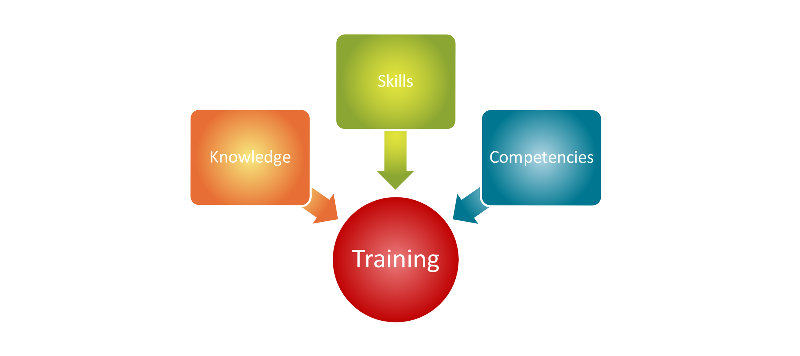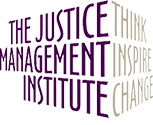Every situation is different. Every person is different. Every organization and culture is different. Supervisors, managers and leaders need to be able to assess and determine the correct mode of intervention or support to effectively address the complex issues and relationships within an organization. Supervision, mentoring and coaching are three divergent methods of support; each has value when applied in appropriate situations.
The following chart is a guide showing many typical work situations and potential modes of intervention depending in the complexity of the situation. It offers one perspective on ways to evaluate what role may be appropriate for a common workplace situation or event. This chart by no means implies that these checkmarks and events are definitive. They are, however, intended to spark your thinking as you navigate the context of any situation or event that requires you to determine what role may be best for the situation.
A search of the Internet will give numerous definitions for coaching, mentoring, and supervision. For the purpose and ease of use of this chart, the following represent a way of thinking about the three respective roles.
Supervision: A formal authority with the ability to impact individual and organizational performance through a variety of methods, including and not limited to:
- Direction and goal setting
- Accountability and metrics
- Progressive discipline
- Decisions on transfer and promotion
- Talent development
Mentoring: A function often requested by a mentee or assigned by a person in authority, mentoring is a process of guiding an individual (such as a new employee) to integrate into an organization or role with an individual who has personal and professional credibility and typically, experience in the same situation. The relationship can be formal or informal.
Coaching: The Center for Executive Coaching defines coaching as an efficient, high-impact process that helps individuals improve results in ways that are sustained over time. We all need support, especially when we are trying to address issues related to complex business decisions or challenging relationships. Coaching offers space to think, generating the coachee’s own insights from which he or she can develop relevant actions. This process supports behavioral change, providing a focused process to gain clarity, explore options and commit to action. Coaching is a relationship that is confidential, supportive and results-oriented.
An example of differentiation of role is performance management. As noted, any of the three roles can be appropriate for addressing performance management issues. If the issue is ongoing and has received previous interventions, moving to progressive discipline or a more structured supervisory approach would be warranted. A mentor might provide feedback about a performance issue they witnessed or heard about anecdotally. A coach may be brought in to support desired change to habits and behaviors that are impacting an individual’s ability to work well with his/her peers.
This list is not definitive, as individual situations have varying degrees of complexity. It does, however present a framework for consideration of appropriate role selection.
Activity/Behavior |
Supervision |
Mentoring |
Coaching |
|---|---|---|---|
|
Attaining and maintaining work/life balance |
X |
X |
|
|
Attendance at conferences |
X |
X |
|
|
Being authentic |
|
|
X |
|
X |
X |
X |
|
|
Creating and sustaining workplace civility |
X |
X |
X |
|
Dealing with life’s tough moments and set backs |
X |
|
X |
|
Decision making |
|
X |
X |
|
Decreased capacity (due to age, illness) |
X |
|
|
|
Developing acumen |
|
X |
X |
|
Developing courage |
|
|
X |
|
Developing self |
|
|
X |
|
Discipline |
X |
X |
|
|
Emergency protocols |
X |
X |
|
|
X |
X |
X |
|
|
Feedback |
X |
X |
X |
|
Gaining and using security access |
X |
X |
|
|
Getting questions answered |
X |
X |
|
|
Goal attainment (personal or organizationally set) |
X |
|
X |
|
Handling objections |
|
X |
|
|
Improving personal control and response |
|
X |
X |
|
Improving problem solving skills |
|
|
X |
|
Improving relationships |
|
X |
X |
|
Improving writing skills |
|
X |
|
|
Increasing political savvy |
|
X |
X |
|
Increasing self-awareness |
|
|
X |
|
Increasing social competence |
|
|
X |
|
Introductions to key people |
X |
X |
|
|
Making desired change |
|
X |
X |
|
Making desired impact |
|
X |
X |
|
Mastering intention |
|
|
X |
|
Media relations |
X |
X |
|
|
Meeting personal and organizational goals |
|
X |
X |
|
Navigating complex systems and political intention |
|
X |
X |
|
Organizational Dynamics |
|
X |
X |
|
Performance management |
X |
X |
X |
|
Policy and use of technologies |
X |
X |
|
|
Protocol for meetings |
|
X |
|
|
Relationship with organizational leaders |
X |
X |
X |
|
Relationships with others |
X |
X |
X |
|
Relationships with peers |
X |
X |
X |
|
Relationships with staff |
X |
X |
X |
|
Requesting vacation and sick leave |
X |
X |
|
|
X |
X |
X |
|
|
Security and threat response |
X |
X |
|
|
Time management |
|
X |
X |
|
Travel reimbursement |
X |
X |
|
|
Upgrading furniture |
X |
X |
|
|
Use of resources |
|
X |
X |
|
Valuing others |
|
X |
X |
|
Valuing self |
|
X |
X |
|
Working through assumptions |
|
X |
X |






